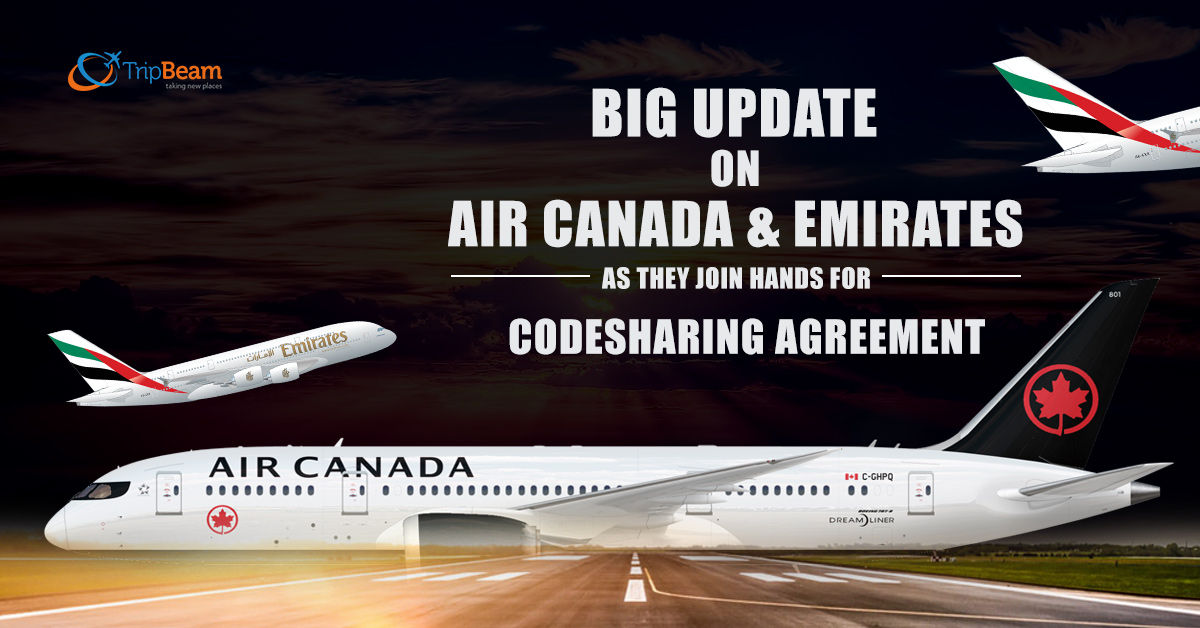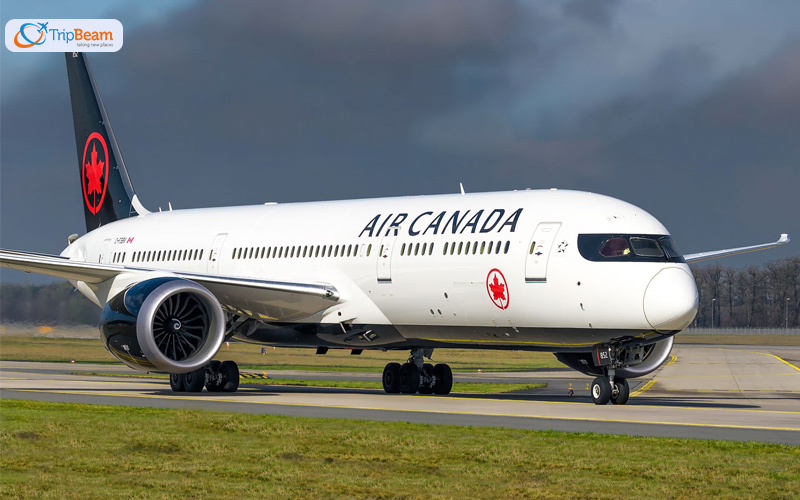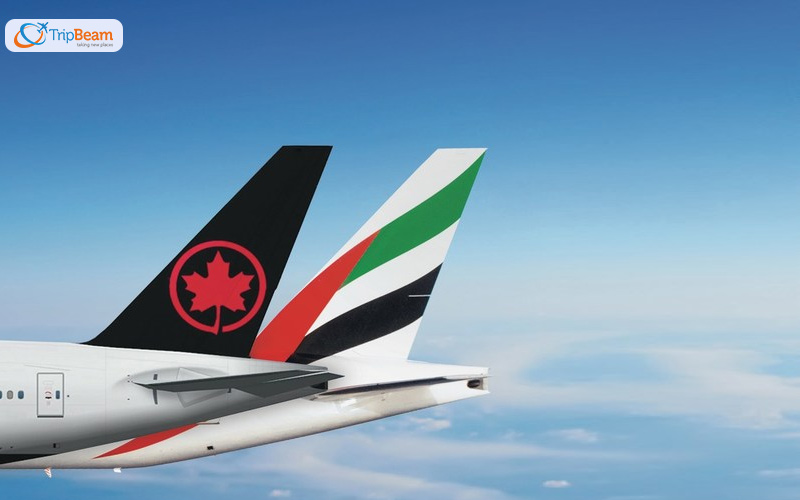


Air Canada is the country’s flag carrier and the largest airline in terms of size and passenger capacity. Air Canada’s headquarters are in the Saint-Laurent neighborhood of Montreal, Quebec. The airline, which was founded in 1937, provides scheduled and charter air transport for passengers booking the best travel deals online and cargo to 222 destinations worldwide. Air Canada’s major hubs are at Montréal-Trudeau International Airport (YUL), Toronto Pearson International Airport (YYZ), Calgary International Airport (YYC), and Vancouver International Airport (YVR). Air Canada Express is the carrier’s regional service.
Air Canada serves 64 domestic and 158 international destinations throughout Asia, Africa, the Americas, Europe, and Oceania for tourists booking domestic and international holiday packages. Together with its regional partners, the airline serves over 222 destinations in 47 countries across six continents.
Air Canada offers passenger booking the best travel deals online with Business/Signature, Premium Economy, and Economy. Signature Class, Premium Economy, and Economy Class are available on most long-haul international and short-haul flights flown by widebody aircraft; most short-haul and domestic routes contain Business Class and Economy Class. All mainline seats have AVOD (Audio Video On Demand) and ambient lighting.
On CRJ-900 and Embraer E175 aircraft, Air Canada Express offers Business class flight and Economy Class; all other Air Canada Express aircraft have one-class economy cabins. All narrowbody mainline aircraft, as well as Air Canada Express CRJ-900 and Embraer E175 aircraft, have onboard Wi-Fi, which is also being implemented on all widebody aircraft.

Emirates connects the world to and through our global hub in Dubai. Emirates flies modern, efficient, and comfortable aircraft, and our culturally diverse workforce provides award-winning services to customers booking domestic and international holiday packages on six continents every day.
Emirates (Arabic: DMG: ayarn Al-Imrt) is one of the two flag carriers of the United Arab Emirates. The airline is based in Garhoud, Dubai, and is a subsidiary of The Emirates Group, which is owned by the government of Dubai’s Investment Corporation of Dubai. It is also the largest airline in the Middle East, operating over 3,600 flights per week from its hub at Dubai International Airport’s Terminal 3 prior to the COVID-19 pandemic. Its fleet of nearly 300 aircraft serves over 150 cities in 80 countries across six continents. Emirates SkyCargo handles cargo.
Emirates is the world’s fourth-largest airline in terms of scheduled revenue passenger kilometers flown and the world’s second-largest in terms of freight tonne-kilometers flown. Emirates operated over 3,000 flights with last minute flights services per week from its Dubai hub to over 150 destinations in over 70 countries across six continents in May 2015. Emirates’ global network had 157 destinations in 83 countries prior to suspensions due to the COVID-19 pandemic in March 2020.
In 1992, Emirates became one of the first airlines in the world to install a personal entertainment system aboard a commercial aircraft, with Virgin Atlantic following suit in the cabins of its planes. Emirates aircraft are equipped with a personal in-flight entertainment (IFE) system in all three classes. Emirates offers two types of entertainment systems: ICE and ICE Digital Widescreen.
A codeshare agreement, also known simply as codeshare, is a business arrangement common in the aviation industry in which two or more airlines publish and market the same flight under their own airline designator and flight number (the “airline flight code”) as part of their published timetable or schedule. Typically, a flight is operated by one airline (technically known as an “administrating carrier” or “operating carrier”), while seats for the flight are sold by all cooperating airlines using their own designator and flight number.
Most major airlines providing last minute flights now have code-sharing agreements with other airlines, and code-sharing is a key feature of major airline alliances. Code-sharing agreements are typically part of commercial agreements between airlines in the same airline alliances.

Emirates and Air Canada have announced the start of their codesharing agreement. As a result of the collaboration, customers of the carriers will be able to travel seamlessly to 46 markets across three continents, including the Americas, the Middle East, Africa, Southeast Asia, and the Indian subcontinent.
As demand for international travel rises, Air Canada is expanding its international network.
Codeshare tickets will be available for purchase in 35 markets beginning December 1 for travel, with the addition of 11 more markets possible after that, subject to final regulatory approval. Tickets can be purchased through the airlines’ websites, aircanada.com and emirates.com, as well as major GDS systems and travel agencies.
Beyond Toronto, Emirates customers who want to book codeshare flights will be able to do so in Calgary, Edmonton, Halifax, Montreal, Ottawa, and Vancouver. Customers of Air Canada searching for the best travel deals online will also benefit from seamless connectivity when flying to cities in the Middle East such as Jeddah and Muscat, Southeast Asian cities such as Bangkok, Hanoi, Phuket, Kuala Lumpur, and Singapore, and African cities such as Addis Ababa and Dar Es Salaam.
The airlines will soon launch a reciprocal frequent flyer program that will allow Aeroplan and Skywards members to accrue and use points on Emirates and Air Canada flights, respectively. Additionally, eligible passengers will soon be able to benefit from reciprocal lounge access as well as specific benefits for Aeroplan Elite and Skywards members when flying with the partner airline.
Tell us more details to help better





